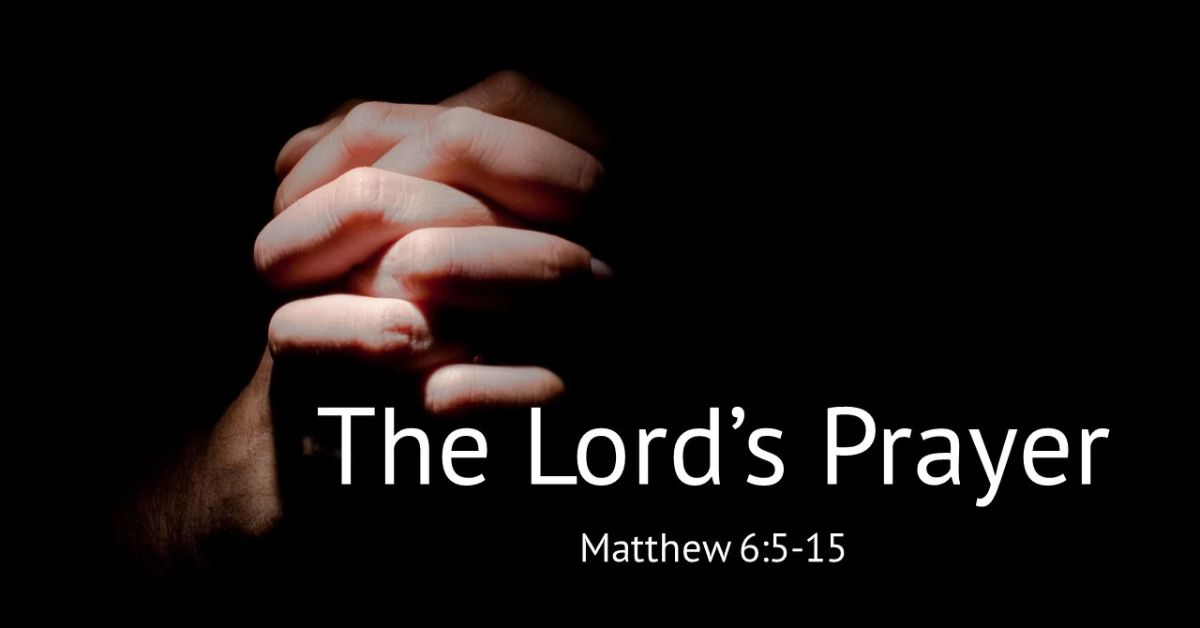Did you know that The Lord’s Prayer is recited by millions around the world every day, transcending cultural and religious boundaries. This powerful prayer, beginning with the words “Our Father Who Art in Heaven,” holds profound significance for countless believers.
We will delve into the biblical verses that compose this sacred text and explore its deeper meanings. By understanding The Lord’s Prayer, you’ll gain insights into its relevance in today’s spiritual landscape and its role in fostering a sense of community and connection among individuals.
What is the Lord’s Prayer?
The Lord’s Prayer serves as a profound blueprint for communication with God, encapsulating essential elements of worship, reverence, and supplication. In addressing God as “Our Father,” it invites us into an intimate relationship, emphasizing the communal aspect of faith, recognizing that we are part of a larger family.

This invocation also encourages us to approach God not merely as a distant deity but as a loving parent, fostering trust and openness in our prayers.
This duality underscores a fundamental truth: our relationship with God is intertwined with our relationships with one another. Each line of the prayer beckons us to engage deeply with its meaning, challenging us to examine our hearts and align our desires with God’s will. By meditating on these words, we can cultivate a more profound sense of connection and purpose in our spiritual journey.
The Lord’s Prayer (Traditional)
As the prayer continues with “Give us this day our daily bread,” it shifts focus to the tangible needs of life, reminding us of the importance of gratitude for sustenance and daily provisions.
This line encapsulates a reliance on divine grace, urging individuals to recognize their dependence on God while fostering an attitude of contentment. The request for forgiveness, “And forgive us our trespasses, as we forgive those who trespass against us,” highlights the interconnectedness of humanity; our ability to receive grace is intrinsically linked to our willingness to extend it to others.
In a world often marred by division, this aspect of the prayer serves as a powerful reminder of the transformative potential of forgiveness.
The Lord’s Prayer (Contemporary)
The Lord’s Prayer begins with a profound recognition of the divine relationship encapsulated in the phrase “Our Father in heaven.” This opening not only establishes a sense of intimacy but also emphasizes reverence, hallowed be your name.
In acknowledging the sanctity of God’s name, we are reminded of the holiness that underpins our lives and the world around us. This prayer serves as a guide, inviting believers to aspire toward the values of God’s kingdom, underscoring the importance of aligning our desires with your will be done, on earth as in heaven. You can also check Prayers for Protection.
The Lord’s Prayer for Kids
The Lord’s Prayer for kids serves as a beautiful introduction to the concept of prayer and the relationship we can have with God. When children say, Dear God, our Father in heaven, they are acknowledging a loving relationship with a divine parent who cares deeply for them.
The phrase “Your name is special and holy” invites kids to recognize the importance of reverence in their communication with God, instilling a sense of respect and wonder about His nature.
This simple yet profound prayer guides young hearts in making good choices and reminds them of God’s everlasting power to protect and guide them through life’s challenges.
The Lord’s Prayer in the Bible:
Beginning with “Our Father in heaven,” it establishes an intimate relationship between the believer and God, emphasizing that prayer is not merely a ritual but a heartfelt dialogue with a divine parent.
The invocation of God’s name as “hallowed” invites us to approach Him with awe and respect, reminding us of His holiness and the sanctity of our communication with Him.
The prayer’s plea for daily sustenance, “Give us today our daily bread,” reflects a deep reliance on God for both physical and spiritual nourishment. This request underscores the importance of acknowledging our needs while trusting in God’s provision.
The calls for forgiveness intricately weave together the concepts of mercy and accountability, urging believers to extend grace to others just as they seek it from God. The Lord’s Prayer not only serves as a guide for personal supplication but also as a communal declaration of faith, challenging us to live out its principles in our daily interactions.
6 Steps taught in the Lord’s Prayer.
- God’s rightful place as the Father: The Lord’s Prayer begins by addressing God as our Father, emphasizing His intimate relationship with us. This title not only reflects His authority but also His nurturing and protective nature, reminding us that we can approach Him with confidence and trust.
- Worship and praise God: The opening lines invite us to worship and praise God for His holiness and the miracles He has performed in our lives. Acknowledging His greatness shifts our focus from our worries to His infinite power, fostering a sense of gratitude that enriches our prayer life.
- Acknowledge God’s will: By submitting to God’s will, we recognize that His plans surpass our understanding. This step encourages humility, teaching us to surrender our desires and align our hearts with His divine purpose, ultimately leading to peace amidst life’s uncertainties.
- Ask for what we need: The prayer instructs us to bring our needs before God, reinforcing the idea that He cares for every aspect of our lives. This is a reminder that it’s okay to seek help and express our vulnerabilities, as doing so deepens our relationship with Him.
- Confess and repent: Confession is a crucial aspect of spiritual growth. Admitting our shortcomings not only clears the path for forgiveness but also cultivates a heart that is open to transformation and renewal through God’s grace.
- Request protection: The prayer implores God for protection against temptation and evil. Acknowledging the reality of spiritual warfare encourages us to seek His strength actively, empowering us to resist sin and stand firm against life’s challenges.
As you meditate on these steps, let them guide your conversations with God, who loves you deeply and desires an authentic relationship with you.
Meaning of the Lord’s Prayer
The phrase Give us this day our daily bread in the Lord’s Prayer often leads many to interpret it as a request for basic, physical sustenance. The Greek term epiousios, translated as daily, carries a deeper significance, meaning above the essence or supersubstantial.
This nuance invites us to rethink our understanding of nourishment in light of eternity. We are not merely asking for our immediate needs but seeking the bread that transcends earthly existence, the living bread that is Christ Himself.
Bible Verses About the Lord & Prayer
The Bible offers profound insights into the power of prayer and the nature of the Lord’s responsiveness to His people. When we turn to 2 Chronicles 7:14, we see a beautiful promise:
If my people who are called by my name humble themselves, and pray and seek my face…” This verse emphasizes the necessity of humility and sincerity in our prayers, suggesting that the path to divine intervention begins with recognizing our own need for God.
Confession and Forgiveness: 1 John 1:9 reminds us that confession is vital; it’s through admitting our shortcomings that we experience God’s faithfulness and justice.
The Power of Community: James 5:16 highlights the strength found in communal prayer, asserting that the prayers of righteous individuals can lead to healing, both personally and collectively.
Psalm 145:18 assures us of God’s nearness to those who earnestly seek Him, while Proverbs 15:29 contrasts this closeness with the separation from the wicked, reinforcing the idea that a righteous heart is vital for effective communication with God.
In Philippians 4:6-7, we are encouraged to bring every concern before God through prayer, which not only alleviates anxiety but also opens the door to peace that transcends understanding.
Conclusion
The Lord’s Prayer serves as a profound expression of faith and devotion, encapsulating key elements of Christian belief such as reverence for God, the importance of community, and the need for spiritual sustenance.
Each line invites believers to reflect on their relationship with the divine and encourages them to seek forgiveness and extend grace to others. The biblical verses associated with this prayer not only provide comfort but also offer guidance for living a life aligned with Christian values.
Understanding its meaning allows individuals to deepen their spiritual journey and foster a stronger connection with God. As you reflect on this prayer, consider incorporating it into your daily routine to enrich your faith and cultivate a more prayerful life.



